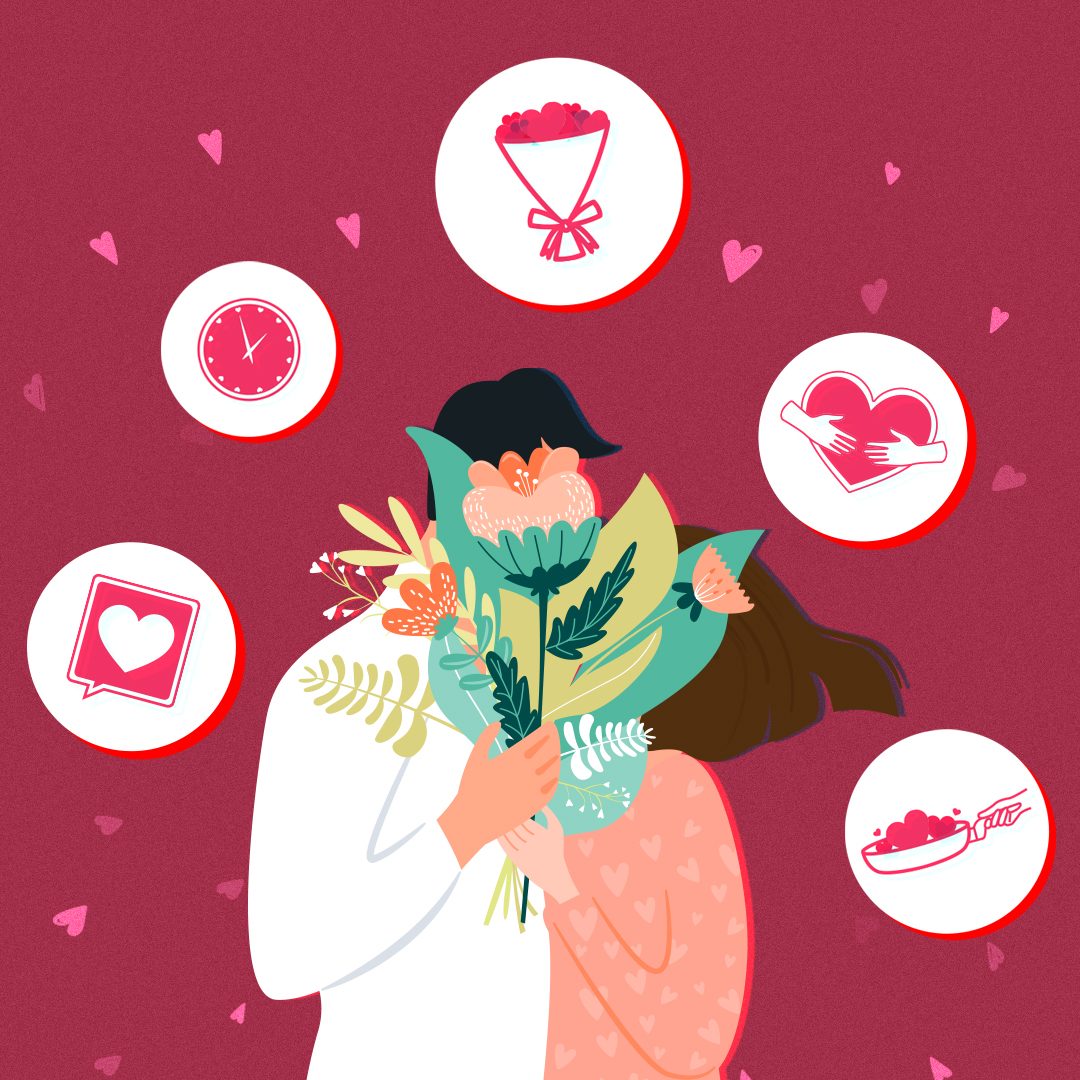SUMMARY
This is AI generated summarization, which may have errors. For context, always refer to the full article.

When it comes to love, measures are like party poopers. When someone tells me that his love for me is in the order of 1023, which is the total numbers of stars in the universe, it should be extremely flattering – IF I were a Star Trek traveler with a bucket list of stars to behold. But while the math impresses little, middle-aged earthling me, 1023 makes me feel more like a grain of sand that was casually flicked into the Pacific Ocean.
But that is probably why “How much do you love me?” is a trick question. There is no love-o-meter that could faithfully register how much love we give or get in a relationship. Not one in the sense that a weighing scale or a glucose meter is to weight and blood sugar. With “love,” we seem to all live with a sense that there is an invisible amorphous warmth and glow we are capable of giving and receiving, and it eludes exact measurements.
But while no factory is churning out love-o-meters in assembly lines, our own varied human experiences could be harvested so they could yield some reading as to what we bring to or take from the two-way street of love relationships we all cultivate. While we cannot measure “romantic love” to yield a rigid number that we can include and hoist in our profiles, research can still capture the elements that inhabit that 2-way- street that make it a loving and lasting one.
Let us look at what science has confirmed or come up with as “dashboards” for romantic love.
A good number of studies have tested an almost 30-year-old concept which is LOL. “LOL” is not “Laugh Out Loud,” although anyone who is in a relationship with a significant other knows that being able to laugh at yourselves as a couple says a lot of good things about you as a couple. LOL here means “Languages of Love.”
In 1992, a pastor, Gary Chapman, who had been counseling couples for years, came out with a book on his concept of the “5 Languages of Love.” Long story short, it was launched in a relative whimper, enjoyed steadily increasing sales, but skyrocketed to millions of books sold starting 2000. As of late last year, it has sold 12 million copies around the world.
The 5 languages of love are no mystical languages that need elaborate flaking here. They are: quality time, physical touch, acts of service, giving and receiving gifts, and words of affirmation. Chapman’s focus was on the lover knowing her/his beloved’s language of love and NOT her/his own. The 5 LOLs are also not static, as they are most likely a shifting combination of all the 5 across time. Scientific research has since looked at this LOL concept and put it to the test.
One of them, a 2006 study, confirmed the fit of these 5 languages in maintaining relationships. The use of these 5 languages are indeed to have been found consistent with the intentions of couples who want to stay in their relationships. This means that if you are consistently engaged in any or all of the 5 languages of love your beloved “speaks,” you should not be surprised if your beloved takes it that you want to stay as a couple.
Another study in 2017 again tested the LOLs to see how much they contributed to the satisfaction that heterosexual couples felt about their relationship. They found that while the LOLs significantly mattered, “self-regulation” of partners mattered MORE than the LOLs, especially when the partners preferred different LOLs. “Self-regulation” refers to one’s awareness of one’s own emotions and balancing them. In practical terms, it means not letting your first instincts lash out but checking them first and leaving room for other reasons for feeling the way you do.
The latest study (2020) I came across tested the 5 LOLs and found that heterosexual and gay couples who perceived that their partners used the language of love that they preferred felt more love and were more satisfied in their relationships.
Aside from the 5 LOLs, there is another concept that was first formulated in 2009 studying adolescents in love relationships. It is called Romantic Competence or “RC.” In 2017, a study evolved this further to embrace romantic relationships at any age.
“RC” has a “love triangle” of core skills, namely insight, mutuality, and emotional regulation. “Insight” is an awareness of your evolving identity and that your beloved is on her/his own journey as well. “Mutuality” is attending to each other’s needs so that both feel respected and cared for. “Emotional regulation” is similar to “self-regulation,” when you exert an effort to NOT be enslaved by ONLY your own feelings about your relationship and keeping them in perspective.
I know, I know. More people would rather read zodiac signs to get a sense of the status and prospects of their romantic relationships than read a science column on RCs and LOLs. But if you want to get an insight about your own capacity to love, on fire with so much passion and concern about another, why would you want to consult the arrangement of those blazing things that number 1023 in outer space?
“Star-struck” humans and how they navigate the beauty and mess of life are the best and only “places” to look for insights into love.
Happy Valentine’s. – Rappler.com
Maria Isabel Garcia is a science writer. She has written two books, Science Solitaire and Twenty One Grams of Spirit and Seven Ounces of Desire. You can reach her at sciencesolitaire@gmail.com.
Add a comment
How does this make you feel?

![[Two Pronged] My friend has an abusive partner. What can I do?](https://www.rappler.com/tachyon/2024/04/limits-of-friendships-april-16-2024.jpg?resize=257%2C257&crop=414px%2C0px%2C1080px%2C1080px)
![[Two Pronged] Am I bi-curious? A lesbian? How do I explore these feelings?](https://www.rappler.com/tachyon/2024/04/two-pronged-bisexuality.jpg?resize=257%2C257&crop=283px%2C0px%2C720px%2C720px)
![[Two Pronged] Will watching porn and masturbating affect my future relationships?](https://www.rappler.com/tachyon/2024/03/two-pronged-single-female-30-year-old-virgin-porn.jpg?resize=257%2C257&crop=235px%2C0px%2C720px%2C720px)
![[WATCH] Spoil me but respect me: A sugar baby’s story](https://www.rappler.com/tachyon/2024/03/titlecard-03.jpg?resize=257%2C257&crop_strategy=attention)

There are no comments yet. Add your comment to start the conversation.